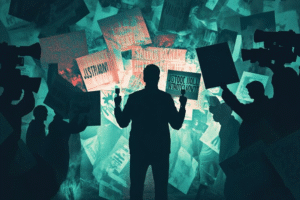If you’re someone who can’t resist the lure of shadowy agents, global conspiracies, and whispered secrets that could shift the balance of power, you’re already hooked on espionage thrillers. But what is it that makes these stories truly unforgettable?
Whether you’re a fan, a book reviewer, or a writer looking to create your own pulse-pounding thriller, understanding the key ingredients that define the genre will help you appreciate and craft an edge-of-your-seat experience.
1. Relentless Suspense
The beating heart of any great espionage thriller is suspense. You, the reader, should constantly feel like something is just around the corner, an ambush, a betrayal, a coded message that changes everything.
Great thrillers don’t give you all the answers up front; they drip-feed information, slowly building anxiety and anticipation.
This suspense is crafted through pacing, strategic reveals, and the constant sense that danger is lurking in the shadows.
2. Complex Characters with Secrets
Forget perfect heroes. In espionage fiction, protagonists are often morally gray, emotionally scarred, and hiding something, sometimes even from themselves. You’ll often encounter:
- Disillusioned operatives trying to do the right thing in a corrupt system.
- Double agents torn between loyalty and survival.
- Ordinary people pulled into extraordinary circumstances.
Readers love these characters because they’re real. They make mistakes, take risks, and deal with consequences just like you would if thrown into their world.
3. Twists, Turns, and Double Crosses
If a thriller doesn’t surprise you, it’s not doing its job. The best espionage thrillers are full of misdirection and sudden revelations. Just when you think you’ve figured it out, the story flips the script.
One of the genre’s most beloved tropes is the double agent, the character you trust, only to discover they’ve been working for the enemy all along. These shocking betrayals keep you invested and guessing until the final page.
4. High-Stakes Conflicts
Whether it’s stolen nuclear codes, a compromised satellite system, or a deep-cover agent on the run, espionage thrillers are built on consequences that could change the world.
The stakes must feel enormous and personal at the same time. A single character’s choice can trigger political upheaval, war, or disaster, and that urgency is what drives the plot forward.
5. Authentic Settings and Realism
Even the most fictional thrillers need a layer of believability. That’s why successful espionage stories are often grounded in real historical events, government agencies, or current geopolitical tensions. When you read them, you feel like this could really happen and maybe already has.
Writers often research intelligence tactics, military protocol, and diplomatic history to create a world that feels authentic. That realism adds weight to every decision and keeps you immersed in the story.
A Perfect Example: Code Name Boulder Creek
Peter S. Eisenhut’s novel Code Name Boulder Creek is a standout example of a gripping espionage thriller. Set during the Cold War, it follows a former CIA operative and a corporate auditor as they uncover a chilling Soviet plan to sabotage U.S. satellite defense systems.
With high-stakes tension, moral complexity, and technical realism, the story delivers everything fans of the genre crave.

Final Thoughts: What Keeps You Turning the Page?
The most successful espionage thrillers make you feel like you’re part of the mission. They pull you into a world where every decision matters, and every character might be playing a dangerous game.
Looking for your next thrilling read? Check out Code Name Boulder Creek by Peter S. Eisenhut and dive into a story filled with espionage, betrayal, and secrets that could change everything.




